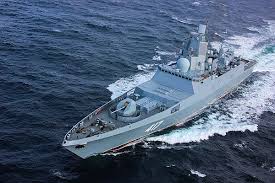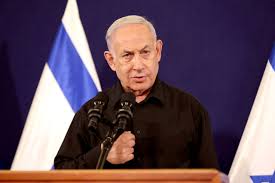
F.P. Report
WASHINGTON: Secretary of State Antony J. Blinken delivered an address on the United States’ commitment to the security and prosperity of the Indo-Pacific in Jakarta, Indonesia on December 14. The United States is a proud Indo-Pacific nation, and the speech outlined a shared vision for the Indo-Pacific and how we will work with our allies and partners to make this vision a reality.
The Indo-Pacific region will shape the trajectory of the world in the 21st century. It is the fastest growing region on the planet. It accounts for 60 percent of the world economy and two-thirds of all economic growth over the last five years. It is home to more than half the world’s people, and many of the world’s largest economies.
Our vision for the region, centered on five core elements, is shared by many countries and peoples in the Indo-Pacific.
First, we will advance a free and open Indo-Pacific in which problems will be dealt with openly, rules will be reached transparently and applied fairly, goods and ideas and people will flow freely – across land, cyberspace, and the open seas – with governance that is transparent and responsive to the people.
We are seeking ways to address challenges to democracy and human rights together with our partners – for example through the recent Summit for Democracy, which resulted in new commitments, reforms, and initiatives to defend democracy and human rights at home and abroad.
In response to the military coup in Burma, the United States has galvanized an international coalition that continues to press the regime to cease the violence, release all those unjustly detained, allow unhindered humanitarian access, and restore Burma’s path to inclusive democracy.
We will also promote freedom and openness by defending an open, interoperable, reliable, and secure internet, which is under attack by governments working to limit the Internet’s potential as an instrument of accountability, make the internet more closed, more fractured, and less secure.
At the same time, we are working with our allies and partners to ensure the region remains open and accessible for all. We are determined to ensure freedom of the seas in the South China Sea, and we have an abiding interest in peace and stability in the Taiwan Strait.
Second, we will forge stronger connections within and beyond the region. We will deepen our treaty alliances with Australia, Japan, Republic of Korea, the Philippines, and Thailand. We will foster greater cooperation among these allies and seek ways to knit our allies together with our partners – as we have done with the Quad.
The Administration’s high-level engagements with the region demonstrate the importance of the Indo-Pacific to the United States and globally. The first two foreign leaders President Biden hosted in the United States were from Japan and the Republic of Korea, and he met last month with President Joko Widodo of Indonesia. President Biden has participated in multiple summits held by key regional bodies – the July APEC Informal Leaders’ Retreat, the March and September Quad Leaders’ engagements, the October U.S.-ASEAN Summit and East Asia Summit, and the November APEC Economic Leaders’ Meeting. Vice President Harris also visited Singapore and Vietnam to advance our relationships with key partners and address issues such as strengthening the resilience of key supply chains.
ASEAN centrality is the foundation of the regional architecture. We will continue to expand our strategic partnership with ASEAN, because a strong and independent ASEAN is essential to tackling urgent crises and long-term challenges. Additionally, President Biden will be inviting ASEAN’s leaders to a summit in Washington in the coming months.
We are also strengthening our strategic relationships with other regional partners, including through the Mekong-U.S. Partnership, just as we are connecting our relationships in the Indo-Pacific with our unmatched system of alliances and partnerships beyond the region, particularly in Europe.
Third, we will promote broad-based prosperity. The United States has already provided more than a trillion dollars in foreign direct investment in the Indo-Pacific, and we will meet the call from the region to do more.
At President Biden’s direction, we are developing a comprehensive Indo-Pacific Economic Framework that will pursue our shared objectives, including those around trade facilitation, the digital economy and technology, resilient supply chains, decarbonization and clean energy, infrastructure, worker standards, and other priorities.
We are shaping the rules of the growing digital economy to unlock opportunities for our people and ensure strong data privacy and security protections.
This week, together with Australia and Japan, we announced a partnership with the Federated States of Micronesia, Kiribati, and Nauru to build a new undersea cable to improve internet connectivity to these Pacific nations.
We also are working with partners to make our supply chains more secure and resilient. The pandemic has highlighted just how vulnerable our supply chains are and how damaging disruptions can be, including shortages of masks and micro-chips, plus pile-ups at ports.
All the while, we will deliver the quality, high-standard infrastructure the region seeks. Build Back Better World, which we launched alongside G7 partners in June, is committed to mobilizing hundreds of billions of dollars in transparent, sustainable financing over the coming years.
The United States is also supporting sustainable and inclusive commercial activity across the region. The October 2021 Indo-Pacific Business Forum, co-hosted by the United States and India, brought together more than 2,300 business and government leaders to promote economic engagement and highlighted nearly $7 billion in new private sector projects.
Fourth, we will help build a more resilient Indo-Pacific. The COVID-19 pandemic and the climate crisis have underscored the urgency of this task.
Of the 300 million doses of safe, effective vaccines the United States has distributed worldwide, we have sent more than 100 million doses to the Indo-Pacific. We have provided over $2.8 billion in additional assistance in the region to save lives, for everything from personal protective equipment to medical oxygen for hospitals. We have done so free of charge, with no strings attached.
As we combat this virus, we are building back better health systems in the Indo-Pacific to prevent, detect, and respond to the next pandemic. In ASEAN alone, we have invested more than $3.5 billion in public health over the past 20 years, and we have announced plans to invest tens of millions more to accelerate joint research, strengthen health systems, and train a rising generation of health professionals.
We have invested hundreds of millions of dollars more in clean energy and climate resilience projects throughout the region, providing clean, green jobs in both the United States and throughout the Indo-Pacific.
We also are working with countries throughout the region to build resilience to the existential threats of the climate crisis and accelerate the region’s transition to clean energy.
Finally, we will bolster Indo-Pacific security. Threats are evolving, and our security approach must evolve with them. To do that, we will lean on our greatest strength: our alliances and partnerships.
The United States will adopt an “integrated deterrence” strategy that more closely weaves together all our instruments of national power with those of our allies and partners.
Our enhanced trilateral partnership with Australia and the United Kingdom (AUKUS) is a prime example; it will advance our strategic interests, uphold the international rules-based order, and promote peace and stability in the Indo-Pacific.
President Biden told President Xi that we share a profound responsibility to ensure that the competition between our countries does not veer into conflict. Diplomacy will continue to be our tool of first resort in meeting that responsibility – ensuring the potential for conflict in the region is minimized, managed, and ultimately deterred.
The United States recognizes that much of our planet’s future will be written in the Indo-Pacific. Our enduring commitment to this region and our collaboration with our allies and partners will help us to achieve a free and open, interconnected, prosperous, resilient, and secure region for all.
The post Secretary Blinken’s Remarks on a Free and Open Indo-Pacific appeared first on The Frontier Post.






